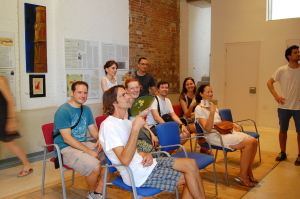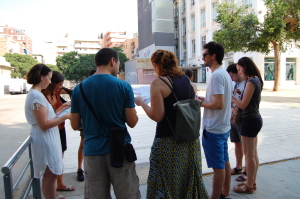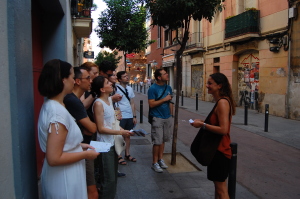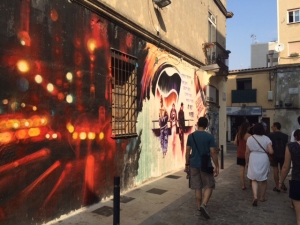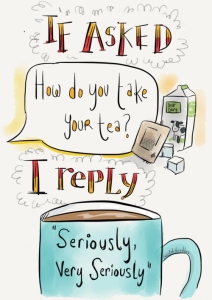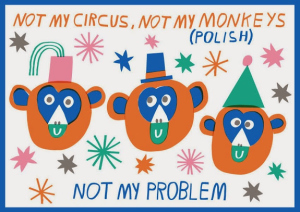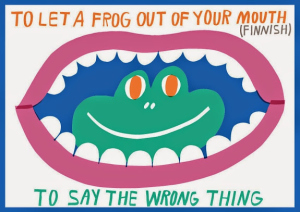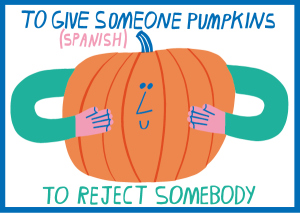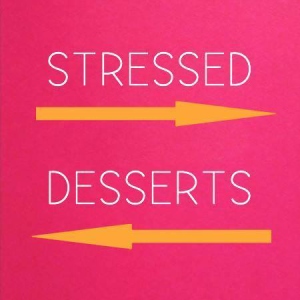Poble Nou Historical Tour | Business English students become tourists for a day!
Business English, Events, Loud and Clear, SpeakIf you remember, last month, some of you signed up for a 2 hour tour on Poble Nou and its history. And boy, did we have fun.
I have to admit, it was a sweltering day (very very humid and hot) but our attentive participants were excited to meet and learn something about a neighborhood that has been changing ever since the late 1800’s industrial revolution.
Our Business English students went from office serious to comfortable cool summer outfits and were the perfect Barcelona tourists.
There were historical facts, lovely streets, a surprise visit to the Water Tower in Poble Nou with spectacular views and a vermouth and some bravas at our local Pubilla from the 1800’s to finish off the day. What was a 2 hour activity turned out to be a 4 hour activity! I took this as very good news, since it meant everyone was having a fabulous time. Next time we will have to include lunch to stretch out (extend) the day!
As most of you know, I am not an expert in tours, but I love the research involved, the discovery, having to translate from Catalan to English and getting to share it with people and see the surprised look on their faces.
And you know what was the best of all? Every single student spoke in English with each other without feeling forced or uncomfortable. It really made this Business English teacher transformed to Tour Guide very happy.
I do hope all of you can join us at some point on one of these tours. They really are magical. All you have to do is look at the smiling faces in the pictures. I had an excellent time, thanks to the great attitude of all the participants. 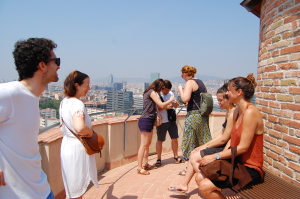
And don’t worry, we will be doing more tours. Any requests on Barcelona neighborhoods you want to learn about??
Okay, so, I have to be honest and confess that I am not a big fan of series. I don’t really watch any at all and Game of Thrones is not something that screams out to me: “Watch Me!”. But, after speaking with a few of my students, I realized how many of my students are hooked (addicted).
I am serious, so many of you cannot stop telling me about it. You also love it so much you are watching it in English!! As you know, anything you do in English makes me happy, so I thought I would share some interesting topics in your honor and since the last episode of Season 5 was aired last week and had everyone talking. Don’t worry, there are no spoilers (when someone shares something you prefer to find out on your own) in this post…
So, for all those Game of Throne Lovers, here you go:
One of my favorite Instagramers posted this today which has inspired this post
Then, a student sent me a video on Game of Thrones and requested I share this with everyone…think Musical + Coldplay (subtitles included)
An entire library archive on The Guardian
Game of Thrones Trivia
Activities all about Game of Thrones in English!
A homemade spoof (funny or mocking imitation) on the opening song
The most beloved character of all being impersonated (Advanced Video)
Speaking of beloved, Jon Snow gets invited to a dinner party in New York (advanced video)
Why NPR thinks Game of Thrones is so popular in Spain. Do you agree??
The days are getting longer, summer is right around the corner and more than one of you has holiday destination on your mind. But before you pack your bags, let’s take a close look at conditionals and talk about the sun.
Here’s a sneak peak at how/when to use conditionals:
|
Zero Conditional |
First Conditional | Second Conditional | Third Conditional |
|
Possible at any time, but mostly in the present or a fact (x=y or cause and effect) |
Possible in the future (thewarning/offer/possibility) |
Impossible in the present…possible but improbable in the future (hypothetical) | Impossible in the past (too late) |
| If + present & present | If + present & will (future —be going to, may, can, should)+ infinitive | If + past & would (could, might)+infinitive | if+ past perfect (past perfect continuous, might have, could have) & would have + past participle |
| If you press this key, the game starts | I’ll call the hotel, if you don’t have time.
If you don’t leave, I’ll call the police! |
If I knew the answer I would tell you
If I were you, I would do it (advice)
|
I wouldn’t have got wet if I had taken an umbrella. If you had been driving more slowly, you could have stopped in time.
|
Think of the Zero conditional as a FACT (Present Simple), The 1st Conditional refers to A HYPOTHETICAL FUTURE, the 2nd conditional is referring to the present or HYPOTHETICAL PRESENT and the 3rd conditional is the PAST or too late.
Now watch this video on how the sun sees you and see if you can create some sentences using conditionals. And most importantly, start wearing sunscreen. Madeleine recommended it to me and I cannot stop sharing it with all our students.
Key words to keep in mind:
Freckles (a small patch of light brown colour on the skin, often becoming more pronounced through exposure to the sun)
Sunspots (a spot or patch that appears from time to time on the sun’s surface, appearing dark by contrast with its surroundings)
Sunbathing (sit or lie in the sun, especially to tan the skin)
Sunscreen (a cream or lotion rubbed on to the skin to protect it from the sun)
Still confused with conditionals? Try this link: http://www.perfect-english-grammar.com/conditional-exercises.html
Happy sunbathing!
Some of you might have had to do get online and search for a way to express your condolences and/or sympathy for someone’s loss, illness or injury recently. Unfortunately, sometimes loss or injury happens and if it is already difficult for a native English speaker to express themselves politely, we can only imagine how much more challenging it could be for a person whose mother tongue is not English.
We would like to give you some tips on how to express your condolences ( an expression of sympathy, especially after someone’s death). Did you know that condolence is Latin for “to suffer together”?
If you receive news that someone’s family member or friend has passed away (to die, decease, pass on) and you want to send them a message, you should remember to make it polite and not too intrusive. The safest is to simply share your sympathy (support, encouragement) by saying the following:
- I’m sorry to hear about your loss
- My most sincere condolences
- My/Our thoughts are with you
- Thinking of you in your time of loss
- You have my/our deepest sympathy
- You have my/our sincere sympathy
- Please accept our most sincere sympathy
If you have heard that someone has been injured (hurt, harmed, wounded) or is ill you can say:
- We hope you recover soon
- We are sorry to hear about your ______________(accident/illness). We wish you a quick recovery
- Get well soon
- Best Wishes, I hope you are back in the swing of things soon! –slightly more informal
- Sending you my/our wishes for a quick recovery and good health
- Wishing you a speedy recovery!
When sending a message or email, just keep it short and simple and do not forget to offer to help if you think you have a close enough relationship. Take a look at a short example:
Condolences:
Dear ____________,
I am so sorry to hear about your loss. My most sincere condolences to you and your loved ones. If there is anything I can do to make these moments easier, do not hesitate to ask. All my best,
Recovery:
Dear ______________,
I am so sorry to hear that you are not feeling well. I hope you recover quickly and if there is anything you need, do not think twice about asking.
Get well soon,
**Now how about you try?
We hope this helps you and one more thing, some students tend to confuse this false friend and expression:
Sympathy= a common feeling, feelings of sorrow
Friendly= “simpatico” or kind, helpful, amicable
When you want to ask someone how they are doing, health-wise, we say: I hope you are doing well/better
Do not make the error of saying: I hope you are going well
Things are going well (i.e. work, life, love, etc): How are you doing? Oh great, thank you. Work is going well!
Your health is doing better (both physical and mental): I am doing better, thank you.
What if you were the last person to speak your language?
Did you know that over 7,000 languages are endangered (in danger of extinction) and at least one language dies every two weeks! Read this article for some interesting facts
This woman is the last woman to speak Wukchumni, a Native American Language. She is the LAST one! Watch her fascinating story HERE (advanced video)
And check out this interactive map on the languages that are disappearing.
The 25 most endangered languages in the world…
Finally, fascinating maps of languages
So, what’s your opinion? How does this affect us? What would you do to save a dying a language? Do you or anyone you know speaks an endangered or at risk language?
Photo Source: http://unescoeducation.blogspot.com.es/2009/03/unesco-courier-endangered-languages.html
We are looking forward to seeing you tomorrow for our 2nd annual Cava event, to toast and look at beautiful art!
If you didn’t get our invitation, please contact me immediately and I will share all the details with you.
Painting by Josep de Torgores “Femme au bras croisés” 1926 — Oil on canvas 60 x 73cm
It’s getting cold out there and there is nothing better than a hot cup of_________ to warm you up. So, we asked our teachers how they took their favorite drink to wake up, warm up or cuddle up with a good book/movie:
Heidi: I love my cup of jo (coffee) and all I need is for it to be freshly brewed with warm milk and two small teaspoons of brown sugar. Don’t give me coffee that has not been freshly brewed…I need fresh! And if you are wondering, I do not drink “American” coffee. I only have espresso, but I do miss the smell of a large pot of coffee brewing.
Madeleine: An English Cup of Tea:
I’m a devoted coffee drinker since living in Barcelona, (I don’t drink tea, as it’s just not the same, and I’m also not a great fan of trying to replicate traditional things in another country!) I could write an essay on British tea drinking, but this is my short personal version.
The best cup of tea is made in a pot, and when I was young, I was always taught by parents and grandparents that you must warm the pot first. (Pour a small amount of boiling water into the pot and swirl the water around to get it warm.) Then add the tea leaves, cover with boiling water and leave for 4-5 minutes.
I drink my tea with a very tiny amount of semi-skimmed milk, (poured into the cup first,) and then finally pour the tea with a strainer.
No sugar.
(Quite the opposite of ‘builders tea’!!!)
Claire My perfect “Cuppa Rosie-Lea” = Cup of Tea (Cockney Rhyming Slang from the East end of London)
– Boil the kettle
– Place your tea bag (PG Tips or Tetley brands will do nicely) in your cup
– Pour boiling (very important!) water over the tea bag
– Squish and squeeze the tea bag in the cup with a teaspoon, leaving it in to brew for a few seconds
– Get your milk (fresh cow’s milk is best) from the fridge and pour a reasonable amount into your tea
– Squish and squeeze the tea bag again until you’re happy with the colour, a nice milky beige
– Take out and discard the tea bag (never use it twice!!)
– It’s ready to drink!
– A bonus is to drink it with a nice biscuit! 😉
Tim Earl Grey tea – decaffeinated, a little bit of cold milk added when it’s brewed plus some McVities Digestive biscuits for dunking (500 year old ancient British tradition of dunking biscuits, nothing to do with USA’s Dunkin Donuts)
Photo source: http://www.twisteddoodles.com/post/54380592146/how-do-you-take-your-tea
This week’s post is all about idioms. You know, those expressions or sayings that exist in every culture and only make sense in your own culture? Well, here are a few great ones that have been translated to English. Can you think of any in your own language? How would you translate them to English? Or how would you explain it to an English speaker?
Here are some in English. How would you translate them to your own language? Can you figure out (determine) what they mean?
It’s raining cats and dogs= it’s raining heavily
Make ends meet= have enough money to cover expenses
Race against the clock= do something quickly because of a pressing deadline
Money talks= money has power and influence
When pigs fly or when hell freezes over= never
Still curious for more? Check this link out for more interesting idioms
Photo Source: http://www.hotelclub.com/blog/idioms-of-the-world-infographic/
In the world of business and frequent meetings, you will receive a lot of information. So, we always suggest you to stay away from (avoid/don’t use) the sentence, “I don’t understand.” That can so easily be interpreted as, “I don’t speak English” and we know that you do speak English and are trying your very best when doing it.
So, let us recommend some expressions you can use when you don’t understand something:
From Formal to Informal:
I beg your pardon?
I’m sorry, could you run that by me again?
I’m not sure I understand your point.
I’m not sure I know what you mean.
Could you be more specific?
Could you elaborate on that?
Would you give me an example?
Excuse me?
Important! Avoid using “What?” It is considered very rude or impolite
If you think you heard it, but want to make sure it is correct:
If I understood correctly, you have said…
Let me see if I have that right…(repeat what they have said to you)
Do you mean…?
In other words, what you are saying is…
Finally, if someone does not understand you, here are some helpful expressions:
Allow me to explain myself.
Let me put it differently. What I was trying to say was…
In other words…
Sorry, let me say that again.
A short video on 5 ways to listen better (a fascinating video for levels B1 and up)
A short podcast on asking for clarifications (Level A2 and up)
Great tip on how to take control of the English Language
Photo Source: http://notesondesign.tumblr.com/page/18
July seems to be quite a busy month for everyone. It is before a month of quiet time, everyone needs to finish their work before leaving and our stress goes up. But did you know that if you spell stressed backwards, it equals desserts? Why don’t we turn stress around and make it a good thing?
This post is for all of you feeling a bit stressed this month…
The difference between stressed and stressful
A person is stressed
A situation is stressful
To Stress something means to emphasize but to stress out means to undergo serious pressure, for example, from work!
Practice pronouncing Dessert, Desert and to Desert!
Here is Today: this helps us make today’s problems quite small…
A great video on how to make stress your friend! (Level B1 and up)
Finally, our favorite therapy here: The Power of Smiling (Level B1 and up)
What some people do to release stress…what is your technique? (Level B2 and up)
So what do you think? Feeling Better?
photo source: http://prepfection.com/

